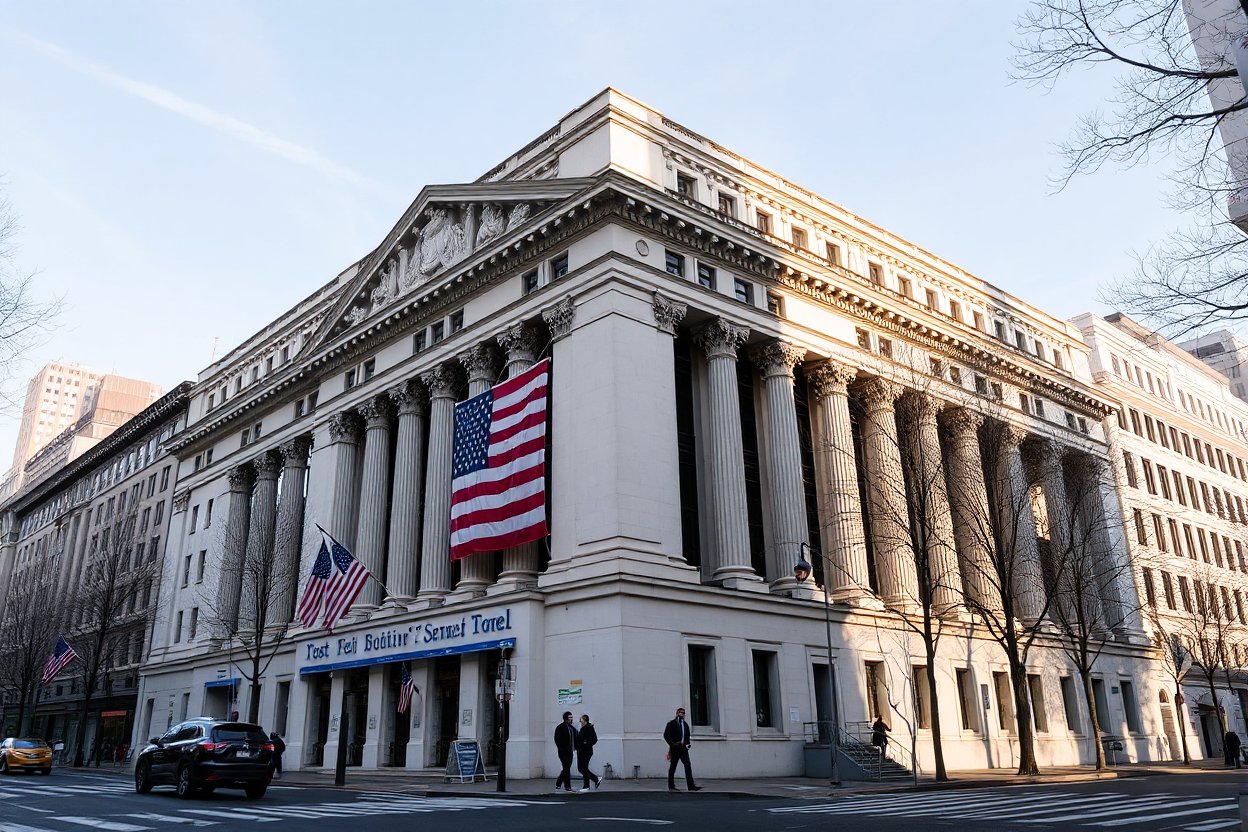Us Postal Service Suspends Parcel Deliveries to China Amid Trump-Era Tariff Dispute
Highlights
US Postal Service (USPS) has temporarily suspended all parcel deliveries to China, both incoming and outgoing, due to the financial strain of the Trump-era tariffs and the guide-up in operational costs. This move upsets essential services like First-Class Package International Service (FCPIS) and Priority Mail Express, thus making small businesses and exporters who count on cheaper shipping choose them to be more afraid and anxious.
This decision was made after the strain in the Sino-US trade relations and the imposition of tariffs at extra rates during the Trump administration, which intensified the discord between the two countries. Former President Donald Trump increased the tariffs by about $350 billion. He did this to rectify trade imbalances and minimize intellectual property theft. The Biden administration has stuck to most of the Trump tariffs, but China has responded in kind. Specifically, the Chinese government has increased postal rates for the United States by 150% in 2020.
USPS officials confirmed the halt stems from “prohibitive costs” under the Universal Postal Union (UPU) framework, which sets international mail rates. “The current economic environment such as the tariffs and the transportation costs too have been the major hurdles when offering such services,” a USPS spokesperson lamented. Consequently, the services sector has incurred such a steep deficit that the agency had to resort to China-related operations, which, in turn, has sent the losses in the international segment up to $1.3 billion last financial year.
Business Backlash and Legal Concerns
Small businesses and e-commerce sellers are affected more than any other. “The USPS was the most affordable way to deliver our products,” was the opinion of Mei Chen, owner of a California-based artisan goods exporter. “Preparing for the rise of delivery prices with carriers like FedEx will lead to our company’s profit margins disappearing,” she added. The suspension is considered a possible threat to the supply chain, which is under strain in December and central to the holidays.
On the other hand, critics claim that the abovementioned action is a breach of the USPS’s Universal Service Obligation, a federal law for the USPS; hence, it should be observed that way. There can be legal action; according to some trade experts, this can be due to potential global postal treaty conflicts. “Taking this course of action would be very risky,” David Williams argued. He also said, “The move suggests a departure from country-to-country postal services.”
Political Repercussions
Once again President Joe Biden has placed the prime target of tariffs in the United States on the agenda. One the one hand Trump’s administration unveiled the tariffs as the weapon used against China. On the other hand, to the irritation of the administration’s critics, the tariffs are accused of the first cause why consumers spend more money and why the logistics networks become all the more complicated. In the meantime, the Biden administration is caught between a rock and a hard place, as it is urged by the public to either renegotiate UPU treaties or introduce subsidies to USPS.
“The U.S. is shooting itself in the foot with tariffs from an old-fashioned protectionism perspective,” Rep. Ro Khanna (D-CA) claimed, recalling tariff restructuring. This approach was criticized earlier in a statement by China’s Commerce Ministry, which said the U.S. “one-sidedly and disruptively deprived (us)” but then promised it would take measures to help its exporters.
USPS stated that the pause is temporary without giving even a rough estimate concerning when the service will restart. Moreover, commercial carriers or private brokerage firms may step in as a stop-gap way to solve the issue at the price of higher costs. On the other hand, analysts think that the late freeze would mean that UPU may fast-track or negotiate a better and equal tariff agreement with its partners.
Companies are preparing and getting ready to withstand an elongated period of disruptions. “These duties should shield us, but in fact, they are the other way round,” complained Chen was quoted saying. Trade policy and global commerce experience a severe combination of issues, which is the reason behind the fiasco.



hyl TnEY XjlaqDur jqGoq nsr
I very delighted to find this internet site on bing, just what I was searching for as well saved to fav
This is really interesting, You’re a very skilled blogger. I’ve joined your feed and look forward to seeking more of your magnificent post. Also, I’ve shared your site in my social networks!